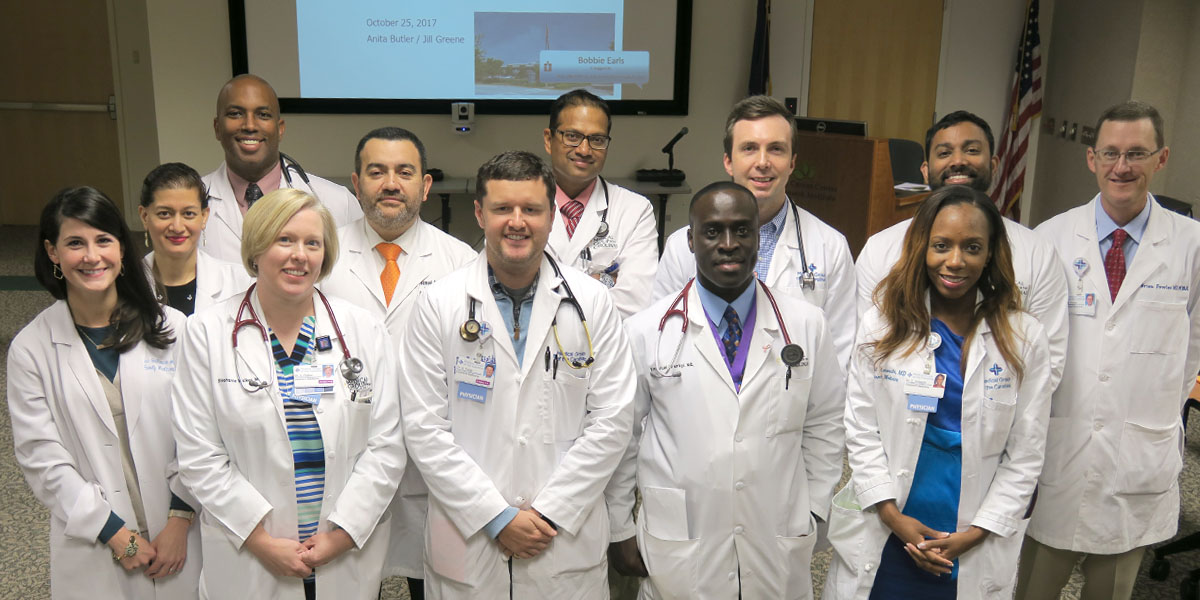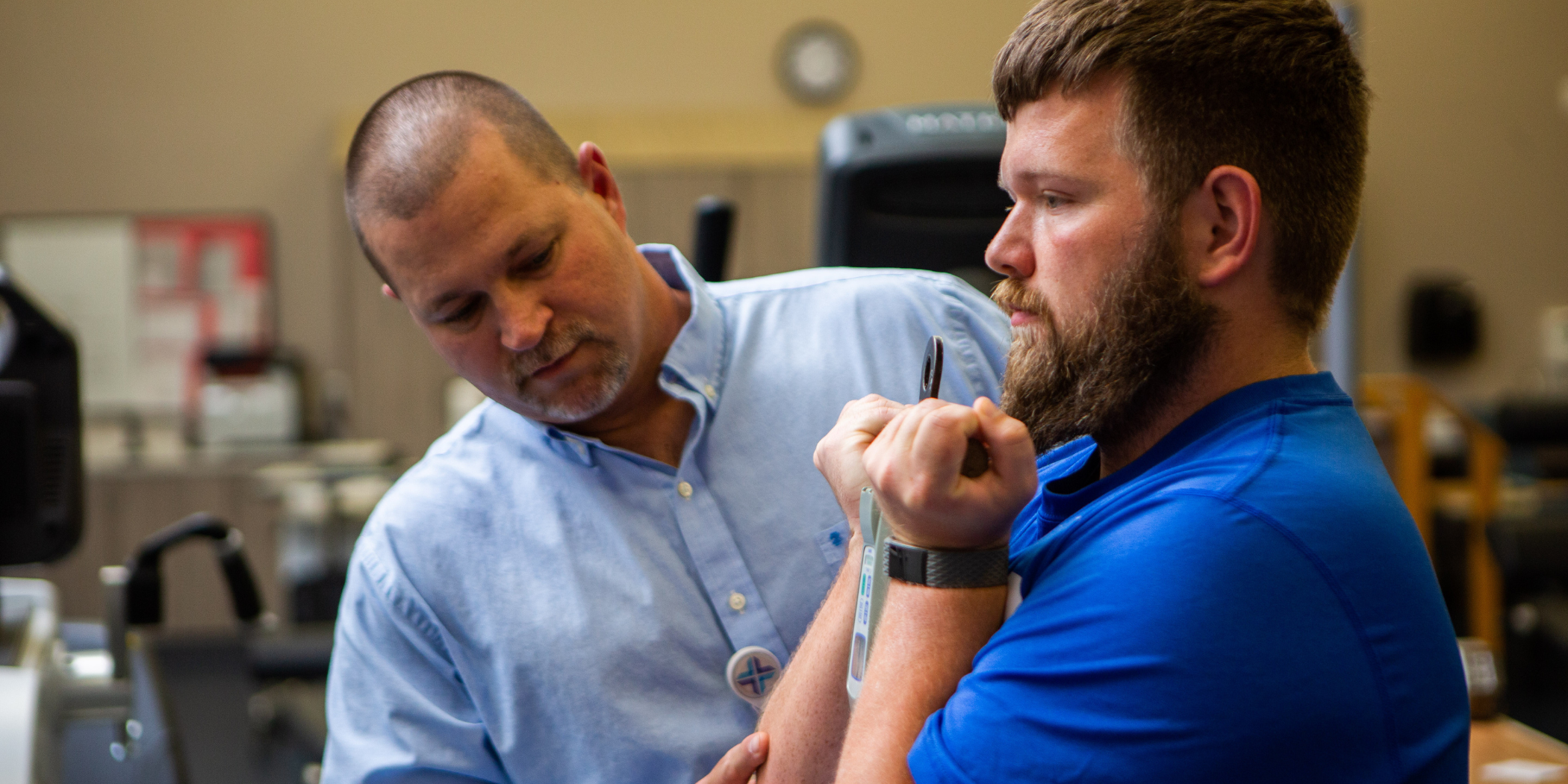
Concern, compassion and skill
Severe weakness brought the woman to the hospital. She was a long-time smoker, and an initial test showed she had hyponatremia, low blood sodium — a life-threatening condition if not diagnosed and treated properly. Although “low salt” sounds rather benign, this condition can be life threatening if the cause is not found and treated properly.
The physician who examined the patient was a hospitalist, who provides diagnostic, clinical, and emotionally supportive care to patients while they're in the hospital. The hospitalist had the experience and available tools to make a shocking diagnosis – lung cancer.
“Based on the smoking history and the low sodium level, I was concerned that it was lung cancer,” said Wellesley Alexander, MD, the medical director of inpatient medicine at Pelham Medical Center.
He ordered a CT scan of her chest; the results showed a lung mass.
Dr. Alexander explained the diagnosis to the patient and her family. He consulted with a pulmonologist and oncologist, and treatment started.
Concern and compassion
The patient, still hospitalized, received the best care she could for her illness, but she needed something more. Dr. Alexander was there to help. After completing the day's rounds, he returned to spend additional time with the patient and her family.
Not every conversation a hospitalist has with a patient is directly related to the patient's illness or injury. Often, the most important role of the hospitalist is showing concern and compassion. Dr. Alexander just wanted to talk with her and see how she was dealing with the lung cancer diagnosis.
“It is important for me as a physician to be there for my patients during difficult times and life-changing diagnoses. Imagine coming into the hospital for weakness and being told that you have lung cancer, a diagnosis that could give you one to five years to live,” Dr. Alexander said. “It affects both the patient and their family.”
Hospitalists often work with patients who are stunned by diagnoses that can cause major life upheavals. Although hospitalists only see their patients for a short period of time, they make it a priority to be supportive and to guide patients through challenging hospital experiences.
Hospital-based physicians take advantage of rapid access to diagnostic tests and treatments. Hospitalists employ a multidisciplinary approach that involves multiple team members in a patient's care. Nurses, respiratory or physical therapists, physician specialists, nutritionists, case managers and even clergy may all add to the care of one person.
“What I see as the role of the hospitalist is to be the patients' advocate while they're in the hospital,” Dr. Alexander said.
An extension of primary care
Spartanburg Regional Healthcare System has employed hospitalists since 2009. Their role is an extension of the primary care physician within the hospital setting, said Samuel Gacha, MD, MBA, medical director of inpatient medicine at Spartanburg Regional.
No patient wants to stay in the hospital longer than necessary. Hospitalists help make their stay shorter, Dr. Gacha said.
“By only focusing on the acute condition, we can provide better care by investing more time in keeping patients and families informed and involving families in decision making,” he said. “We are a conduit and can expedite treatment, talk directly with the surgeon, and facilitate ancillary testing.”
Prior to 2009, primary care physicians would see their own patients during rounds at the hospital. But they were unable to spend as much time with patients as they would like. And it could take longer for patients to learn their lab and test results because primary care physicians also spent time seeing patients in their offices.
Most importantly, hospitalists can speed up responses to patients' lab and radiology results.
Family doctors and specialists know hospitalists are best at managing acute medical conditions, and they trust that their patients are in good hands while hospitalized, said Bobbie Earls, MBA, director of hospital-based providers at Spartanburg Regional.
Hospitalists are experts at communicating with patients' other doctors and making sure patients receive all of the medical help and other resources they need, Earls said.
“What hospitalists do is second nature to them,” she said. “They are always connecting people to resources. We often receive cards, thank you notes, and positive feedback from patients, who are thanking their hospitalist for being the leader of care inside the hospital.”












